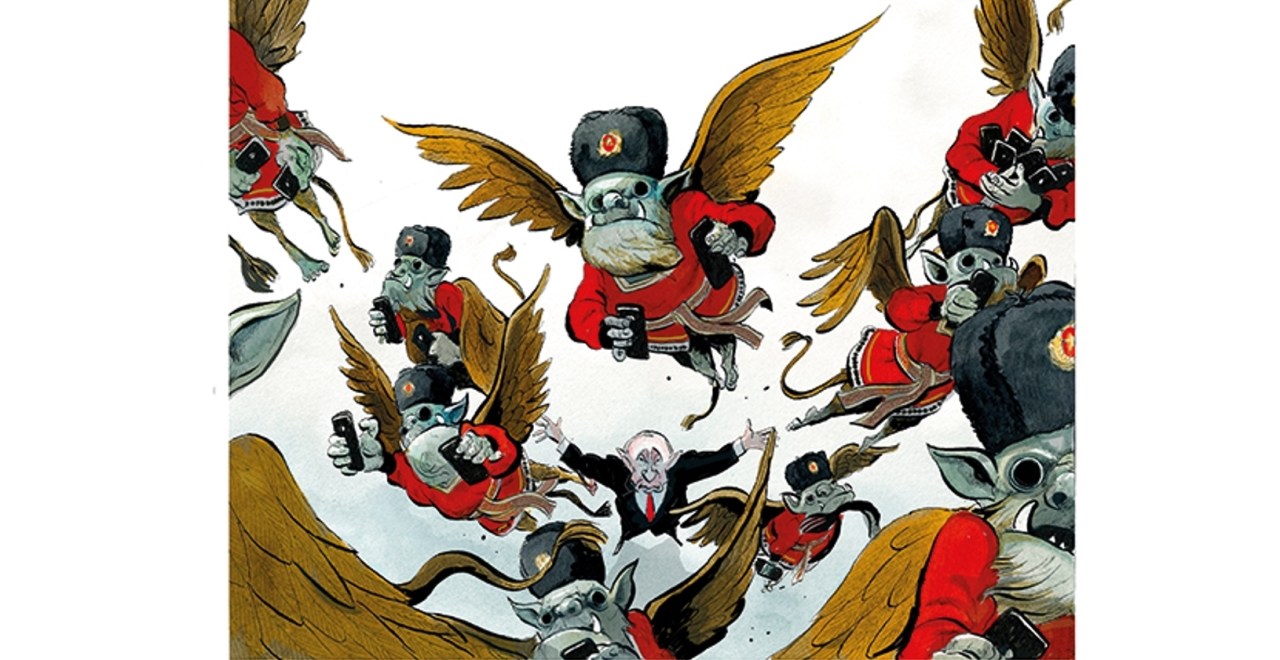During the 2020 presidential campaign, Joe Biden promised to approach Russia and its irascible President Vladimir Putin with a new sense of toughness and purpose. Now calling the shots in the White House, President Biden appears to have made good on that promise — at least symbolically.
On Tuesday, the Biden administration announced several sets of sanctions against Moscow for last summer’s attempted assassination of the Russian activist Alexei Navalny, a plot that involved the Soviet-era nerve agent Novichok. The sanctions, taken in concert with the European Union’s own measures, included asset freezes and travel bans on seven Russian officials deemed responsible for the poisoning, imprisonment, and prosecution of Navalny. The US State Department also placed six Russian organisations on a sanctions list which would punish any foreign entity that engages with them.
By the administration’s own words, the purpose of the designations is to send Russia a message that trying to assassinate and jail dissidents within its own borders will not be tolerated. That message, however, is likely to be as quickly dismissed by the Kremlin as every other missive Washington has sent since at least 2014, when Russia annexed the Crimean peninsula and instigated a pro-Russian rebellion in Eastern Ukraine. The question is not whether the latest sanctions on Moscow are morally justified, but rather whether they will make any difference in how Russia behaves.
Economic pain is something the Russian government can deal with; challenges to its authority, it can’t
The short answer: almost certainly not.
For the US and the European Union, economic sanctions can be a powerful tool to wield against adversaries for a variety of malignant conduct, whether it be cyberattacks and human rights abuses or violations of sovereignty. With a combined $37 trillion (£26 trillion) between them, the US and EU hold approximately 42 per cent of the world’s wealth. For individuals and companies seeking to trade with Americans and Europeans, getting cut off from the US financial system is about as calamitous to ones wallet as cutting oxygen is to the human body.
But there is a substantial difference between imposing one’s will on a lonely CEO and pressuring an entire country to change the way it operates. US and EU officials frequently reach for the sanctions option because it’s seen as easy and relatively painless: slap some financial punishments on the bad guys, the thinking goes, and you can demonstrate seriousness to constituents and pretend the problem is solved.
Unfortunately, reality says otherwise. The Russians are no strangers to US and EU sanctions. According to the Center for a New American Security, the United States has imposed 742 designations on Russia under a number of different authorities over the last decade. President Trump, who was often portrayed as insufficiently tough on Moscow, placed 273 designations on Russian-linked entities. Nearly half of those were in response to Moscow’s military involvement in Ukraine. Russia is now the second-most sanctioned country by the US, surpassed only by Iran.
And yet despite all of this activity, Moscow’s conduct is largely unchanged. If anything, Russian foreign policy is more aggressive today than it was in 2014. Russian troops remain in Eastern Ukraine, ensuring the separatists fighting Kiev are still standing.
Russian activity in cyberspace is at a fevered pace, as revealed in the intricate nine month long SolarWinds operation. Previous sanctions levied against Russia in retaliation for the attempted poisoning of Russian-turned-British spy Sergei Skripal failed to deter the same Russian intelligence service from using the same type of weapon against Navalny two years later.
If it’s hard to move Russia in a more constructive direction on foreign policy, it’s silly to think the US and EU can move Russia on what it regards as its own internal affairs. Beating demonstrators in the streets, arresting over 10,000 Russian citizens in dozens of cities for protesting, sticking some of them in unsanitary jail cells and throwing Navalny is prison on absurd charges leave those of us in the West with a nasty taste in our mouths. But there appears to be little our governments can do to stop it. Why? Because for the Kremlin, maintaining a grip on power and marginalising (or eliminating) political rivals is perhaps the Moscow elite’s top priority. Indeed, it’s a matter of self-preservation. Economic pain is something the Russian government can deal with; challenges to its authority, it can’t.
Simply put: if Washington and Brussels think more blacklistings are going to spring Navalny from a two-and-a-half year sentence in a penal colony or somehow turn Putin into a born-again democrat, think again. Nations don’t back down very easily — especially when fundamental national interests are at stake.







Comments